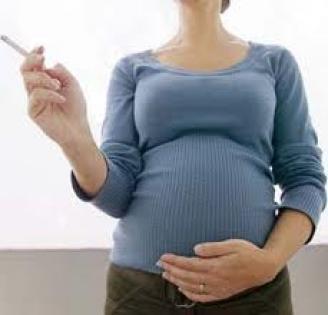New research from the University of Adelaide has shown for the first time that pregnant women who smoke as well as having asthma are greatly increasing the risk of complications for themselves and their unborn children.
In the first study of its kind in the world, researchers from the University's Robinson Institute compared data from more than 170,000 South Australian women over 10 years.
"We know that being pregnant and having asthma poses risks to both the mother and the baby,” says lead author, Dr Nicolette Hodyl.
“We know that smoking poses risks to both the mother and the baby. But now we also know that the combination of these conditions represents a very dangerous situation.
"Asthma and smoking are separately linked during pregnancy to increased risk of bleeding from the birth canal before labour, urinary tract infections, premature rupture of membranes, low birth weight and preterm birth (less than 37 weeks of pregnancy).
"The combination of asthma and smoking greatly increases the risk of these complications during pregnancy."
Dr Hodyl says 5.8% of pregnant women who were not asthmatic and non-smokers experienced a preterm birth.
"For asthmatic women, the preterm birth rate increased to 6.5%. Among smoking women, 9.4% experienced preterm birth. And for asthmatic women who also smoked, the rate of preterm birth jumped to 12.7%, which is more than double the normal rate.”
She says this is an alarming statistic.
“We hope that pregnant women begin to understand the seriousness of this situation to their health and the health of their child," she says.
Dr Hodyl says the research also uncovered another worrying statistic: about a quarter of pregnant women with asthma are smokers.
"While the rates of smoking have been decreasing in recent years, it is very concerning to us that many pregnant women with asthma are also smoking," she says.
"Quitting smoking during pregnancy is very difficult, and therefore pregnant women need as much support as possible from family, friends and health professionals.
“Our results show that even a reduction in the number of cigarettes women smoke per day can lead to some improvement to the risks to their child. However, the potential for poor health outcomes for both the mother and child should not be underestimated."



















__small.png)










